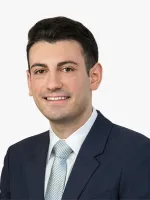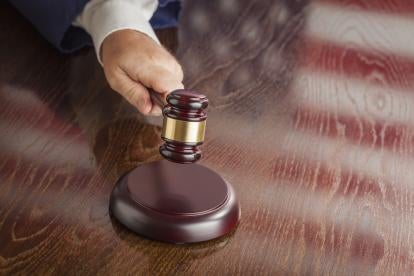The Supreme Court of the United States concluded that the Constitution’s Double Jeopardy Clause does not preclude retrial of a criminal defendant who was prosecuted in an improper venue and before a jury drawn from the wrong district. Smith v. United States, Case No. 21-1576 (Sup. Ct. June 15, 2023) (Alito, Justice.)
Timothy Smith was indicted in the Northern District of Florida for stealing trade secrets from StrikeLines, a company that uses sonar equipment to identify private artificial reefs that individuals construct to attract fish. In particular, Smith was accused of “surreptitiously” obtaining portions of coordinates and data from StrikeLines’ website.
At trial, the district court denied Smith’s motions to dismiss the indictment and for judgment of acquittal due to improper venue. Smith unsuccessfully argued that “he had accessed the data from Mobile, Alabama (in the Southern District of Alabama) and [that] the servers storing StrikeLines’ coordinates were located in Orlando, Florida (Middle District of Florida).” On appeal, the US Court of Appeals for the Eleventh Circuit reversed but concluded that “the ‘remedy for improper venue is vacatur of the conviction, not acquittal or dismissal with prejudice,’ and that the ‘Double Jeopardy Clause is not implicated by a retrial in a proper venue.’” Smith appealed to the Supreme Court.
On writ of certiorari, the issue before the Supreme Court was “whether the Constitution permits the retrial of a defendant following a trial in an improper venue and before a jury drawn from the wrong district,” or if retrial is barred by the Double Jeopardy Clause.
Citing precedent and the text of the Venue and Vicinage Clauses, Smith advanced the theory that the purpose of the Clauses bars retrial and requires acquittal. However, as the Supreme Court explained, neither purpose nor precedent demanded that the Venue or Vicinage Clauses be excepted from the general rule that, unless prohibited by the Double Jeopardy Clause, “a defendant [who] obtains a reversal of a prior, unsatisfied conviction . . . may be retried in the normal course of events.” The Court rejected Smith’s argument that the Venue Clause is meant to prevent the hardship of undergoing trial in a distant forum because the clause is “keyed to the location of the alleged ‘Crimes’” and not the district in which the defendant resides. The Court similarly rejected Smith’s arguments related to the purpose of the Vicinage Clause, noting that the Court has “repeatedly acknowledged that retrials are the appropriate remedy for violations of other [Sixth Amendment] jury-trial rights.”
Next, Smith appealed to the historical background of the Venue and Vicinage Clauses. The Supreme Court examined the relevant historical background and explained that the remedy at common law for a trial in an improper venue and before a jury drawn from the wrong vicinage did not preclude retrial. Moreover, the Court noted that it previously “embraced the retrial rule for a venue error” and that other federal and state courts have similarly ordered retrials for venue violations.
Finally, Smith argued that the Venue and Vicinage Clauses are “inseparably interwoven” with the Double Jeopardy Clause, thus precluding retrial. The Supreme Court explained that a judicial decision on venue is “fundamentally different” from a general verdict of not guilty because only the latter contemplates the “general rule that ‘[c]ulpability . . . is the touchstone’ for determining whether retrial is permitted under the Double Jeopardy Clause.” Unlike a reversal from a general verdict of not guilty, reversal of a conviction based on a venue or vicinage violation does not resolve “the bottom-line question of criminal culpability” and is premised “on a basis unrelated to factual guilt or innocence.”
Ultimately, the Supreme Court concluded that “the Eleventh Circuit’s decision that venue in the Northern District of Florida was improper did not adjudicate Smith’s culpability” and thus did “not trigger the Double Jeopardy Clause.” Therefore, the Court ruled that retrial was permissible.




 i
i


